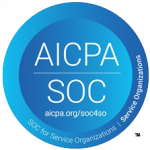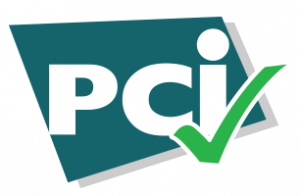
Entering 2026 with an Advanced AI game plan
Healthcare organizations entered 2025 with cautious optimism—but for many, that optimism is being tested. Financial pressures, workforce shortages, and the continued complexity of revenue cycle management (RCM) are forcing leaders to rethink how they operate and where they invest.
While the industry has made strides toward digital transformation, much of the RCM landscape remains fragmented and dependent on manual intervention. And as margins continue to tighten, hospitals can no longer afford inefficiencies that eat away at financial stability.
Let’s take a closer look at the challenges shaping healthcare finance in 2026—and why many organizations are turning to advanced AI as the next frontier in RCM improvement.
Contact Revco to see how our AI capabilities align with your business goals.
Table of Contents
The Four Financial Pressures Hospitals Can’t Ignore
1. Fragmented Systems Are Holding RCM Back
Despite years of modernization efforts, an estimated 70% of RCM processes still require manual intervention. From claim scrubbing to denial follow-up, fragmented systems create friction that increases administrative costs and slows reimbursement. The hidden cost of this fragmentation is significant—lost time, delayed cash flow, and burned-out staff who are stretched thin.
2. Staffing Shortages Continue to Strain Operations
By 2026, the U.S. is projected to face a shortage of 3.2 million critical healthcare workers, according to the American Hospital Association. Hospitals are finding that they simply can’t “hire their way out” of these challenges. Even with competitive pay and flexible scheduling, the labor pool isn’t deep enough to sustain the volume of administrative and clinical tasks that modern RCM requires.
3. Margins Remain Razor-Thin
Hospital operating margins have improved since the pandemic, but most organizations are still operating on less than 3% median margins. With costs rising faster than reimbursement rates, even small inefficiencies or denials can push a system into the red.
4. Financial Recovery Is Uneven
There were 57 healthcare bankruptcy filings in 2024, highlighting how fragile financial recovery remains across the industry. Inflation, reimbursement delays, and limited access to capital continue to challenge hospitals—especially those in rural or community settings.
The message from healthcare finance leaders is clear: organizational success can’t solely depend on adding more staff.
Why AI Is Becoming Essential in RCM
Sustaining financial health now requires identifying the right technology—especially AI-driven tools—that can extend the capacity of both financial and clinical teams.
Yet adoption remains slow. A recent RCM technology survey found:
- 49% of healthcare organizations dedicate 10% or less of their tech budgets to AI.
- 47% are only exploring AI and have no plans to implement.
- Just 5% are pursuing a full AI transformation.
- And 34% cite unclear ROI as the biggest barrier to moving forward.
Hospitals understand the potential, but uncertainty about where to start and how to measure impact often leads to inaction.
The Value in AI: From Administrative Relief to Financial Insight
AI’s potential in healthcare extends far beyond automating routine tasks. McKinsey estimates that $200–360 billion could be eliminated from U.S. healthcare spending with broader adoption of AI-enabled efficiencies. In fact, 30% of medical documentation and 29% of back-office RCM work could be supported or augmented through AI.
But, as healthcare organizations look to strengthen financial performance in 2025, it’s important to recognize that not all AI is the same. Different technologies serve distinct roles across the revenue cycle—from automating manual tasks to improving documentation accuracy and predicting reimbursement trends. Understanding the types of AI used in RCM is the first step in identifying which tools can deliver the most value for your organization.
What Are the Main Types of AI Used in Revenue Cycle Management?
Artificial intelligence is reshaping how healthcare organizations manage revenue—from reducing manual work to improving reimbursement accuracy. There are six main types of AI commonly used in revenue cycle management (RCM): robotic process automation (RPA), predictive analytics, natural language processing (NLP), machine learning (ML), clinical AI, and cognitive automation. Each serves a specific role in improving efficiency, financial performance, and staff productivity.
1. Robotic Process Automation (RPA)
Definition: RPA uses software “bots” to automate repetitive, rule-based tasks within RCM workflows.
RCM Applications:
- Automating claim status checks, eligibility verification, and data entry
- Streamlining payment posting and account updates
- Reducing time spent on manual follow-up and repetitive data tasks.
Benefits for Healthcare Organizations:
- Accelerates cash flow and shortens payment cycles
- Reduces human error in billing and claims submission
- Frees staff to focus on higher-value financial activities
2. Predictive Analytics
Definition: Predictive analytics applies AI to analyze historical and real-time data to forecast outcomes and identify risks.
RCM Applications:
- Predicting denials before they occur
- Identifying accounts at risk for delayed payment or bad debt
- Anticipating seasonal or payer-based reimbursement trends
Benefits:
- Enables proactive intervention and smarter decision-making
- Improves collections and reduces write-offs
- Supports strategic financial planning
3. Natural Language Processing (NLP)
Definition: NLP allows AI to interpret and extract meaning from unstructured text, such as clinical notes or payer correspondence.
RCM Applications:
- Reading and classifying denial letters for faster appeals
- Suggesting coding improvements based on documentation
- Extracting clinical and financial data from physician notes
Benefits:
- Reduces manual review time
- Improves coding accuracy and compliance
- Enhances denial prevention and appeal success rates
4. Machine Learning (ML)
Definition: Machine learning algorithms identify patterns in large data sets and continuously improve predictions or decisions over time.
RCM Applications:
- Recognizing patterns in denied claims to prevent recurrence
- Recommending optimal coding or payer-specific strategies
- Forecasting cash flow or claim turnaround times
Benefits:
- Improves first-pass claim accuracy
- Enhances forecasting and financial visibility
- Increases reimbursement consistency
5. Clinical AI
Definition: Clinical AI refers to artificial intelligence used directly in patient care and clinical decision-making, rather than purely administrative tasks. These systems analyze medical information such as imaging, labs, and patient histories to assist clinicians in diagnosis, treatment planning, and documentation.
RCM Applications:
- Identifying complications or co-morbidities that support accurate reimbursement
- Preventing denials with real-time documentation guidance
- Supporting quality reporting by reflecting true patient complexity
Benefits:
- Ensures hospitals are paid accurately for the care provided
- Reduces documentation burden and physician burnout
- Strengthens both clinical and financial outcomes
6. Cognitive Automation / Intelligent RCM Platforms
Definition: Cognitive automation integrates multiple AI capabilities—RPA, ML, and NLP—to handle complex, end-to-end workflows.
RCM Applications:
- Automating claim prioritization, routing, and appeals
- Managing denials from identification to resolution
- Providing executives with real-time revenue cycle dashboards
Benefits:
- Enables holistic automation and operational visibility
- Reduces administrative waste
- Supports faster, data-driven financial decisions
Choosing the Right AI Mix for Your Organization
The most effective revenue cycle strategies use a combination of AI tools. Automating routine tasks with RPA, improving coding accuracy through NLP and ML, and supporting documentation with clinical AI allows hospitals to balance efficiency with accuracy. Together, these technologies help healthcare organizations reduce costs, capture missed revenue, and create a more resilient RCM operation.
How Revco Uses AI to Optimize Revenue Cycle Management
At Revco Solutions, we leverage advanced AI technologies to improve collections, streamline workflows, and enhance the patient and staff experience. Our data-driven tools help hospitals and healthcare organizations make smarter decisions, faster without adding unnecessary burden to their teams. Using AI, we:
- Predict Patient Payment Behavior with Machine Learning
- Prioritize Call Campaigns with AI Scoring
- Utilize Real-Time Agent Assist
- Analyze every call with Speech Analytics
- Proactively Monitor Security Intelligence
- Offer 24/7 Self-Service Support with Chatbots and Patient Portals
Revco combines cutting-edge AI with expert revenue cycle management strategies to help healthcare organizations reduce inefficiencies, improve collections, and deliver a better experience for patients and staff.
Learn how Revco’s AI-driven solutions can optimize your revenue cycle.
Summary
The financial headwinds facing hospitals aren’t new—but they are intensifying. Fragmented systems, staffing shortages, and razor-thin margins demand new solutions that go beyond incremental fixes.
As healthcare organizations plan for 2026, success will depend on how effectively they connect their financial, clinical, and operational strategies. AI isn’t a replacement for people—it’s a way to amplify expertise, eliminate inefficiency, and protect revenue integrity in an increasingly complex environment.






